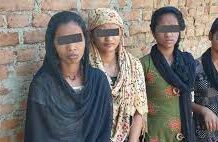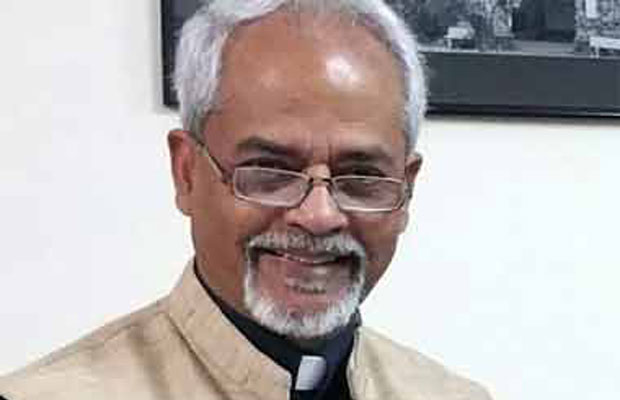By Valson Thampu
There are times when I feel disappointed, indeed exasperated, with Christian Dalits, especially in Kerala. Perhaps they have not yet managed to break the mould of centuries-old Dalitness as yet. This disables them to respond adequately to situations of blatant injustice. The proof of a person’s sense of justice is not that he or she cries out for justice for oneself. It is that one is committed to justice for all; especially for the most vulnerable and the powerless. The Dalits, more than any other group, must have a concern for justice, for the simple reason that they have been, for long, victims of systemic injustice and social oppression.
The bodies of nuns being recovered from convent wells is a sickening pattern in Kerala. The latest in this series of ‘suicides’ is that of Sr. Mabel Joseph, whose body was recovered the other day from the well of a convent recently in the Quilon district of Kerala. She was 42 years old; reportedly suffering from chronic ailments. She has left behind, we are told, a suicide note, which makes intriguing reading. In it, she states that she is ending her life because of ‘allergies and health issues. She concludes, ‘Nobody is responsible for my death. Keep me in your prayers.’
The meagre suicide note raises two serious issues as well as strikes a funny note. First, by the admission of the deceased, she is suffering from ‘allergies and health issues. From the nature of this description, it unlikely that she was suffering from major health issues like cancer or any other incurable, life-threatening ailments. Logically speaking, when a person refers to her distresses it is the most serious among them that is named. ‘Health issues’ is a vague, subjective description. As regards ‘allergies’, there are very few people who do not suffer from allergies. I have suffered from allergies all my life. But they did not make contemplate suicide even academically!
There is a major reason why this should worry everyone with a conscience. Enduring suffering is an important aspect of one’s spiritual calling. Suffering is the furnace in which sainthood is forged. Nowhere in his teachings did Jesus say that by following him individuals could lead a trouble-free life. Rather, to the contrary. The Catholic Church, in particular, has accorded suffering an exalted state.
A nun is supposed to be the bride of Jesus. Jesus distinguished himself by his suffering. How can she then chicken out and take her life, quite contrary to the teachings of the Church, just because she has some allergies and health issues? As per the teachings of all churches, committing suicide is a Judas-like accursed thing. Those do so incur damnation. So, a nun committing suicide, if this is indeed a case of suicide, should be taken with extreme seriousness by the Catholic Church. It is most surprising that despite many a nun committing suicide in recent years, there is no indication that it bothers the church to any extent.
The second issue pertains to the sickeningly similar patterns in most of these cases. Is there any reason the nuns prefer to end their lives in the wells? Why not consume poison? Or, jump into the railway track? Or, slit their arteries?
An even more important question is why it is that convents even today do not deem it necessary to secure their wells from being used for such an ungodly purpose. It does not take massive investments to do so. Covering the mouth of the well with a strong iron mesh, which cannot be easy, and noiselessly, shifted or removed, with overnight illumination of the well site, will suffice. It can be done with a maximum investment of Rs. 5000. Yet, not a single convent, to the best of my knowledge, has moved in this direction. Are we to infer from this studied reluctance to initiate preventive measures that these well are also meant to serve such a purpose?
Now to the funny thing. Sr. Joseph wants those who read her suicide note to ‘pray for her’. Assuredly, this is extraordinarily uncommon. A person who commits suicide is supposed to be in a state of extreme desperation and depression. Sr. Joseph must have been an incredible unusual person to worry about what happens to her after she takes her own life!
My readers would recall that long ago there used to be a system in jails. A sentry used to be deputed to guard the well in the prison campus. That was to ensure that the inmates of the prison, who were under long prison terms, did not jump into the well and end their misery. It is a shocking fact that the convents do not attach to the life of their nuns even the worth that prison authorities attached to the life of convicts.
Not only that. The prison keepers seem to have been more honest than convent-keepers about the conditions that prevail within. They did not hide the fact that the conditions in the prison were such that they could drive convicts to suicide. Suicides are more common in our convents than they were in prisons in the distant past. What does this indicate?
Surely, only one thing: the plight of these nuns is unbearable, worse than that of prison convicts. Some endure it. But many crack up. They conclude that ending their life is a better option than living in such degradation and misery. This is the only inference we can arrive at, given how frequent nun-suicides are becoming. Indeed this is already a human issue that merits both socio-psychological studies and sustained criminal investigation. But, given the political clout that the Catholic Church wields in Kerala, the latter seems an unlikely thing to happen.
On this occasion, I cannot help remembering Sr. Abhaya. I have read the judgment convicting Fr. Kottoor and Sr. Sephy. The judge tries to re-construct the scene and sequence of murder. Somehow his account fails to carry conviction. Not that I believe that Kottoor and Sephy are innocent. I feel that the actual story is still hidden.
I am not a crime expert or a Sherlock Holmes. But I know one thing. It is unlikely that two men go to a convent to have sex with a single nun. Simple common sense makes one believe that very likely something like group sex was involved. Sr. Abhaya, who came into the scene unwittingly, must have been coerced against her will to surrender herself to the early-morning predators. She would have resisted. Had she obliged, she would have been secure in the solidarity of sin and she would have survived. To the extent she refused, it became necessary to get rid of her to cover up the indefensible.
From the stray statements we have had from the nuns who left convents, rather than end up as bodies in the wells, there is a compelling basis to assume that many of the sisters live in extreme trauma and self-revulsion induced by guilt. Especially nuns hailing from poor socio-economic backgrounds live under extreme pressures. They are far more vulnerable. (It needs to be noted that none of the two dozen sisters who allegedly committed suicide was from a rich or reputed family.) Leaving the convent is not an option for them. They have no support system to enable them to survive if they do.
So, what does this amount to? Well, it amounts to an absolute shock! In this day and age, in a democratic society that promises freedom and personal dignity to all citizens, a system is thriving in our midst that keeps thousands of nuns, as Pope Francis himself said, as sex slaves. The nuns who have committed suicide, faced a clear-cut choice: live in degradation or end their subhuman existence? They chose the latter.
The least the Christian community needs to do, to ensure that these avoidable tragedies do not recur is to create a volunteer corps and keep overnight vigil at convent wells. This might seem impractical, mainly for the reason that the convent authorities would object. Let them. But they will have to, if they object, undertake to make adequate preventive arrangements to ensure that convent wells are not used for such purposes.
I would appeal to my fellow Dalit Christians to take the initiative in this matter. In the patriarchal Christian community, especially to the church hierarchy, women are de facto Dalits. The poorest, more vulnerable of all Dalits are nuns who are exploited and ill-treated when they do not surrender themselves to the will of the mighty and the maniacal, who show themselves to the outside world in sheep’s clothing.
(The writer is a former principal of St. Stephen’s College, Delhi. Views are personal).


















































The community life of the nuns where there is discrimination and harassments which lead to depression have to be examined.
Heartiest condolences to the family members of Sr Mabel Joseph. Is it possible for any of us who can reach them in person and in confidence to interrogate them about the shocking end of the nun…?